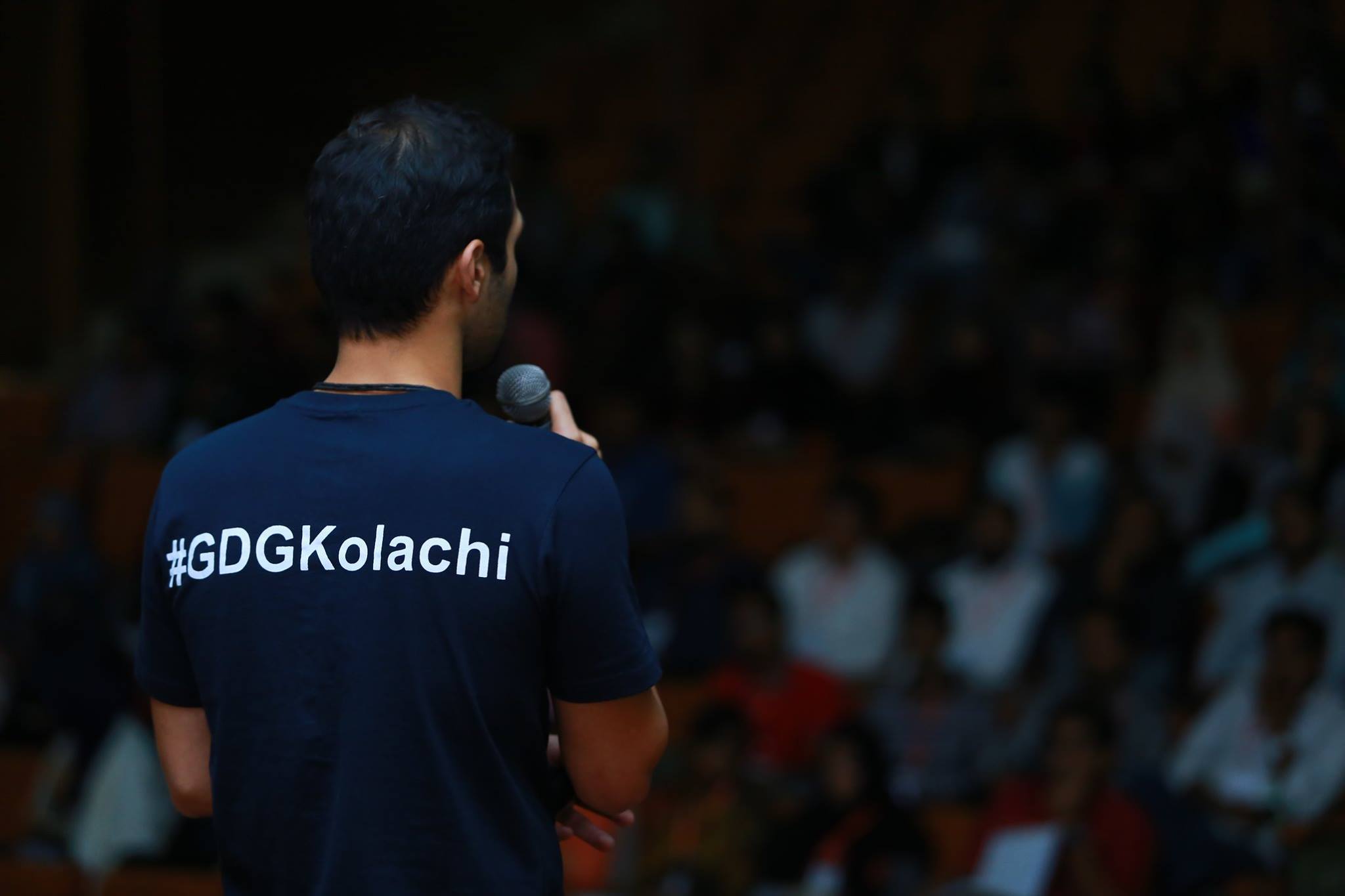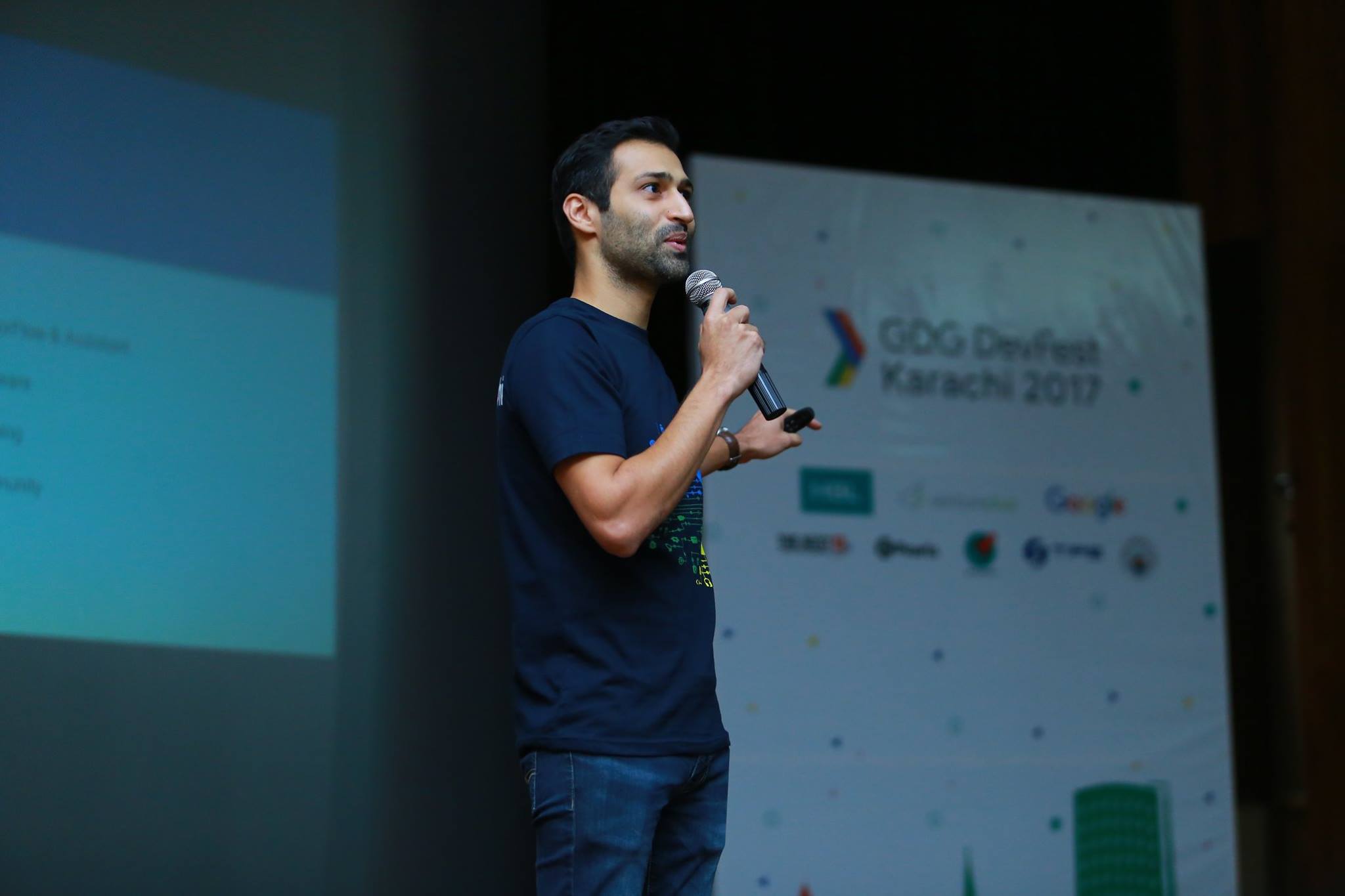Google might not have an official presence in Pakistan, but it is heartening to know that Pakistan has a presence in Google. Originally from Karachi, Sami Kizilbash is an Information Systems major and is currently working as the head of Google’s Developer Ecosystem for Southeast Asia.
By heading the developer ecosystem, Sami manages Google’s relationship with a matrix of nearly a million software developers from entire Southeast Asia including Pakistan, Indonesia, and Malaysia among other countries. Not only does his role with Google hold paramount importance for the market, his career path before this point has also been admirable. From owning startups to working with multinationals, Sami’s background makes him very well-suited to his current job.
Sami founded a Singapore-based tech startup, Figr, back in 2010. Figr’s aim was to digitize receipts and help the environment by saving paper. The startup managed to raise significant funding, and though things didn’t pan out as the founder would have hoped, it still gave Sami an up close and personal insight into how the startup ecosystem actually works. There were a few steps between being an entrepreneur and assuming the role of Google’s Head of Developer Ecosystem in Southeast Asia, but the progression means that Sami really knows what to say to an emerging startup or a talented developer.
Maintaining relationships with developers across the region is essential for Google to make sure their processes and programs are always optimized and have the potential for constant improvement. The life cycle of the company’s relationship with a developer can begin as early as the developer’s student life. Google has a lot of outreach programs and talent hunt schemes all over the world at the university level. For professionals as well, there are communities like Google Developers Community Groups (GDG) and Google Business Groups (GBG) where people can discuss topics related to the company’s products and their technical aspects.
GDG in Pakistan

In Pakistan, these communities are fairly active, with GDG having volunteer-led chapters in Islamabad, Lahore, and Karachi. These chapters have successfully organized 12 events so far, with a total of 2500 developers in attendance. DevFest has also come to Pakistan, and last year 750 developers were involved in Karachi and Islamabad. These aren’t the only Google-backed initiatives in the country though. Google Developers Experts program has onboarded mentors like Mashood Rastgar, who provide technical assistance and guidance to local startups and developers.
GBG in Pakistan
GBG isn’t behind as many events as the GDG community, but it is making headway in a different direction. Maryam Arshad, the community’s leader in Peshawar, recently signed a MoU with the National Incubation Center. Sami is really excited about the prospects this partnership offers.
Google I/O conference is also coming up in May this year, and the Pakistan chapter of GBG will be represented there as well, with chapter leaders invited to attend.
Launchpad Accelerator
This program targets startups from emerging markets, but the objective is to support developers and companies that are striving to improve local conditions. Startups catering to the local market are also candidates for Launchpad Accelerator. This program was piloted just 2 years ago, but it is already in its 5th batch of startups. As per Sami, Google received applications from startups in 40 countries and out of those 25 ventures were selected. 6 of these startups are from Southeast Asia, including 1 from Pakistan named VividTech.
VividTech is looking to revolutionize the way customer support works, and is already working with major telcos. Like all Launchpad inductees, the Pakistani startup team spent 2 weeks in Silicon Valley, getting mentoring sessions from Google experts and industry insiders from around the globe.
Women Techmakers
In Pakistan, entities like Google’s Women Techmakers add a whole new dimension to the company’s involvement with the community. As the name implies, this initiative aims to bridge the gap between the number of women studying software / IT and the percentage of women who go on to work in the industry. Google Kolachi is the community chapter that is involved in this initiative in Pakistan. A lot of influential women are already part of Women Techmakers, and the community is sure to keep growing.
Google’s Future Plans For Collaboration With Pakistani Developers & Startups

Tentatively speaking, Sami discussed that Google is fully aware of the challenges faced by developers and startups in emerging markets. There are, of course, local constraints and a variety of other potential problems, but in the end it all comes down to getting funding. Early stage funding is often considered the hardest to get, but for many companies getting funds once the startup is off the ground is an even bigger challenge. Google might be looking at educating “traditional” investors about the benefits of funding ideas rather than entities like real estate. Once these investors have a better understanding of the IT market, it opens more opportunities for all involved parties.
Another goal is to get more involved with Pakistani developers, and Google is open to expanding the reach of its communities to other cities of the country as well.
Thanks to the support provided by all the Google-backed groups, many Pakistani developers have made the jump to entrepreneurship or working for big companies. Even for companies that are relatively well-established, Google’s communities can provide the proper technical and business support. This includes training sessions, material on technical advancements, and recruitment recommendations. The focus seems to be on helping anyone whose aim is to help the local community. This means providing opportunities to students or helping companies that are working to develop technical solutions for the local market.
Sami is very positive about the potential of Pakistan and believes that there are a lot of people who seem interested in giving back to the community by promoting the entrepreneurial mindset.











